America’s baby boomer women take to the streets for their rights, yet again
Women won the right to vote in America in 1920, after a hard-fought and sometimes violent battle, and the feminist movement of the 1960s ushered in a new era, during which women won rights ranging from sitting on a jury to getting a bank account to deciding whether to have an abortion.
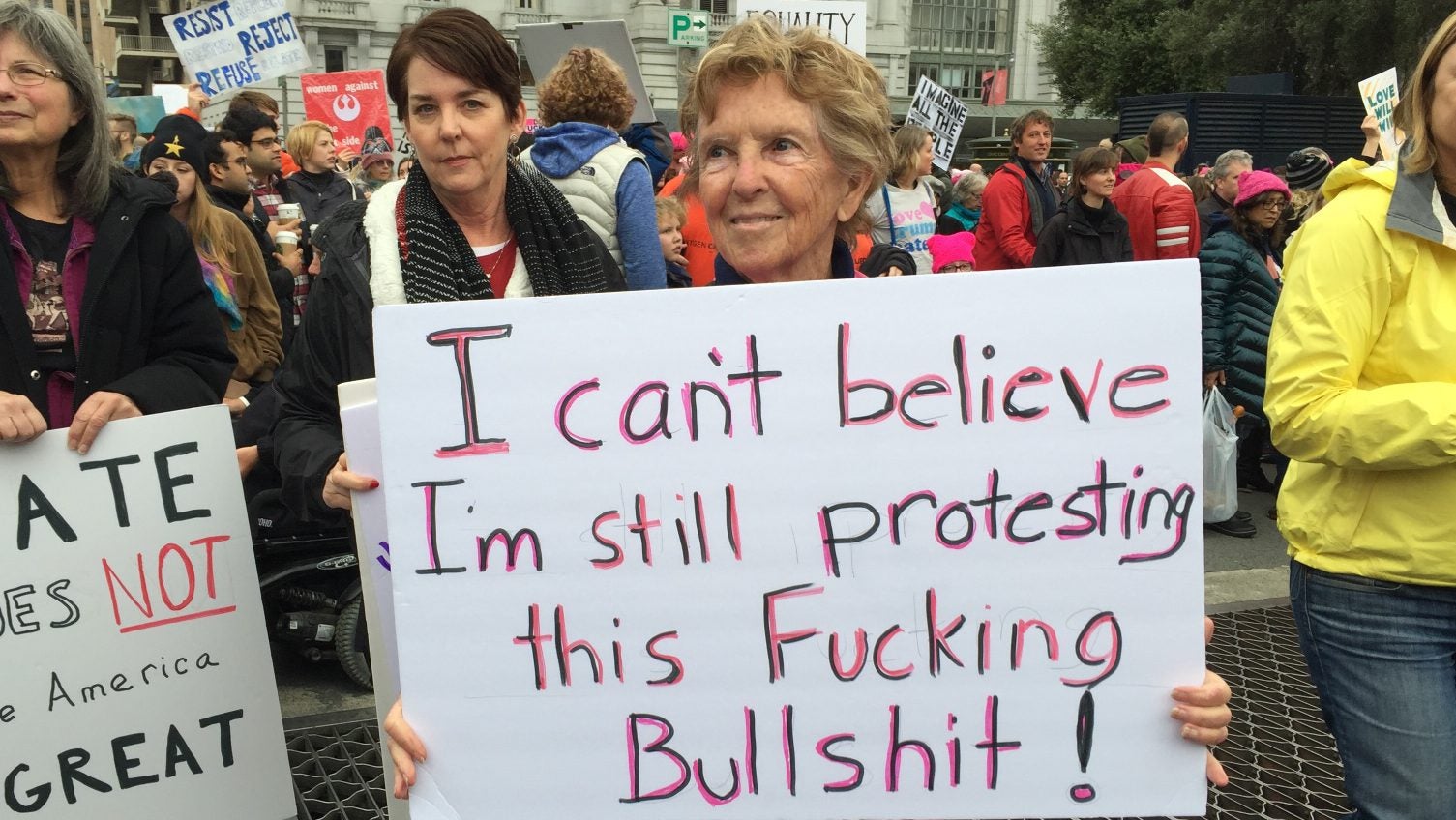

Women won the right to vote in America in 1920, after a hard-fought and sometimes violent battle, and the feminist movement of the 1960s ushered in a new era, during which women won rights ranging from sitting on a jury to getting a bank account to deciding whether to have an abortion.
Since then they’ve made gains in everything from higher education to employment. So when the US elected a self-confessed sexual predator (who has nominated an attorney general with a long history of voting against women’s rights) and voted in a Republican-led Congress that has pledged to completely defund Planned Parenthood, maybe it’s natural it triggered the largest single-day protest in American history.
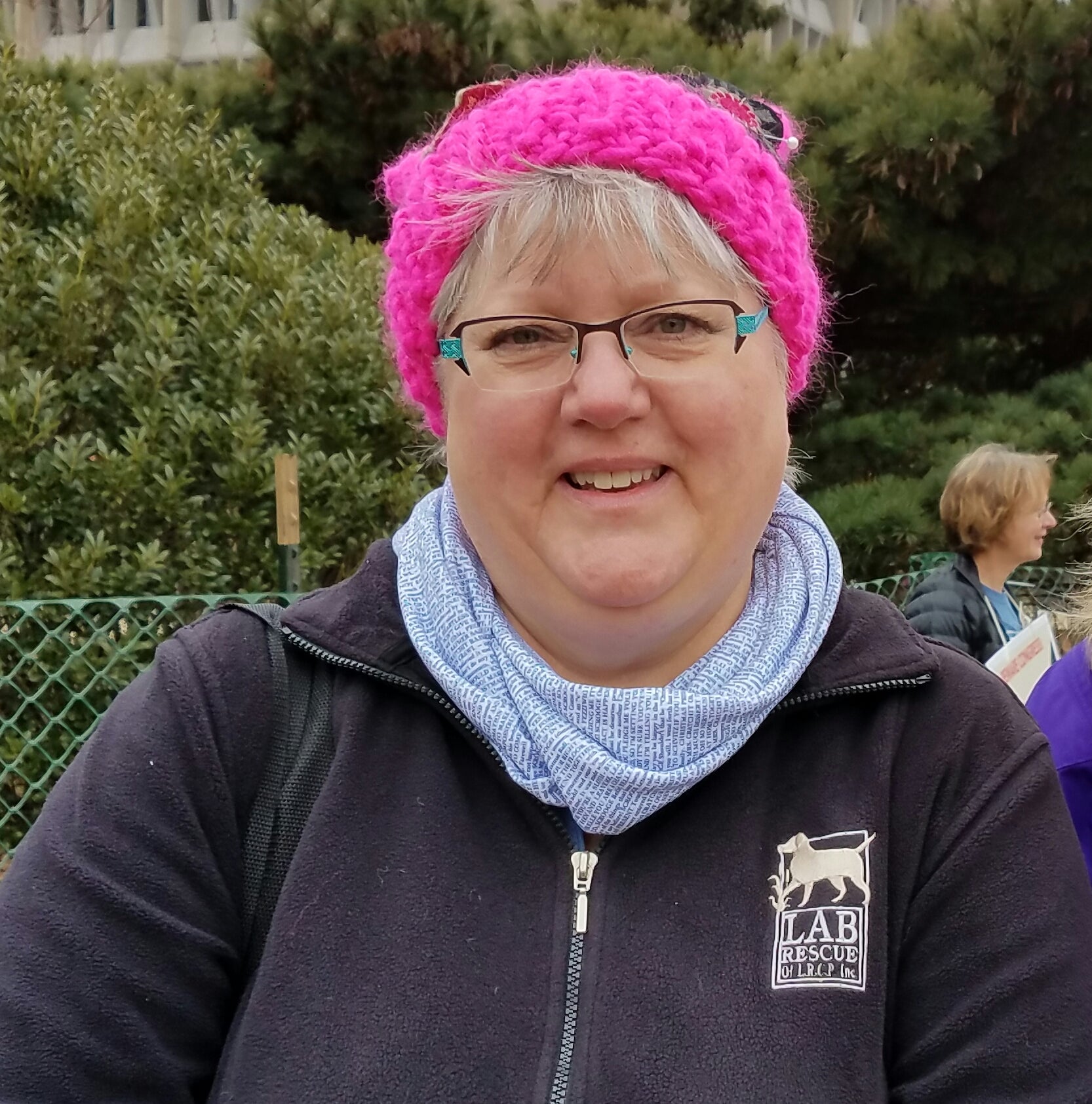
Baby boomer women, those born during the post-WWII population bulge, joined an estimated 4 million protesters who went to Women’s Marches across the US on Jan. 21, 2016, bringing their daughters and their husbands, their friends and their sisters. Many were participants in the original movement for women’s and civil rights in the 1960s and ’70s—and their sentiments could pretty much be summed up by the sign above. Or maybe this one here.
Things for American women have not progressed nearly as far, or as fast, as they’d hoped when they first marched years ago, they say. Among other factors, the US is the lone major developed nation to not guarantee maternity leave, US women are still paid about 80 cents for every dollar a man makes, and women make up just 20% of Congressional seats. Then there was the sexism and misogyny rampant during the last presidential campaign.
Kathy Feininger, 58, first marched for women’s rights when she was 12 or 13, she estimated, “but here we are again, fighting the same battles” at the Women’s March in Washington, DC on Jan. 21. This time, she said, instead of marching for herself, she’s marching for her godchildren and for the next generation of women.
America is far from where Feininger thought it would be when she first marched as a young woman. “By now I thought there would be a female president,” she said. She never thought America would, in 2017, still be talking about defunding Planned Parenthood. “I don’t even understand why we’re in this conversation,” she said. “Why do people on the Hill think they can control women’s bodies?”
“I’ve always been very hopeful until this election,” she said. “I really believed we had advanced further.”
“I’m not as hopeful as I was 20 years ago,” she said. But, she added, she hasn’t given up all hope. “I believe most Americans, or at least 50%, are basically good people.”
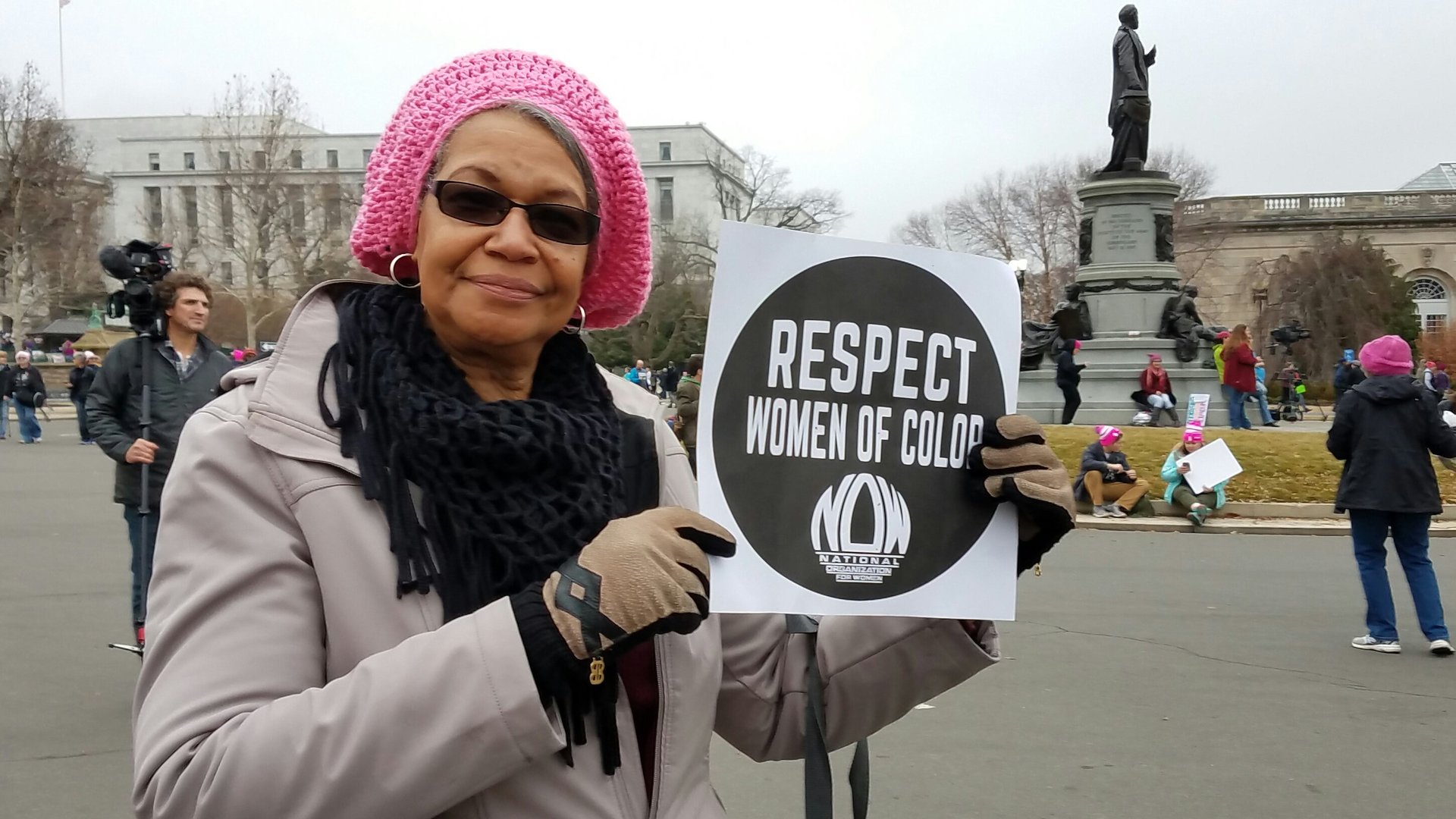
“My march before was for civil rights, in 1963,” said Marian Dickson, 65, a Washington, DC resident wearing a pink knitted hat. “This is overwhelming. I’ve never seen this many people” on a march in Washington. Even in the 1960s, though, she knew she would still be out protesting today. “Issues are passed down to children, to generations,” she said. “So many people have to die out before we get to a common ground.”
Dickson said she was there to demonstrate for racial equality, women’s equality, religious equality, and immigrants’ rights. Trump’s election was illegal, she believes, and has left her with a “sense of evil.” The Christian bible “tells us we’re on a downward spiral,” she said. But it also teaches that we should “love, be kind to, and respect one another,” she said, and that teaching will promote unity. For things to change, it is important that “these people go home and continue to be excited.”
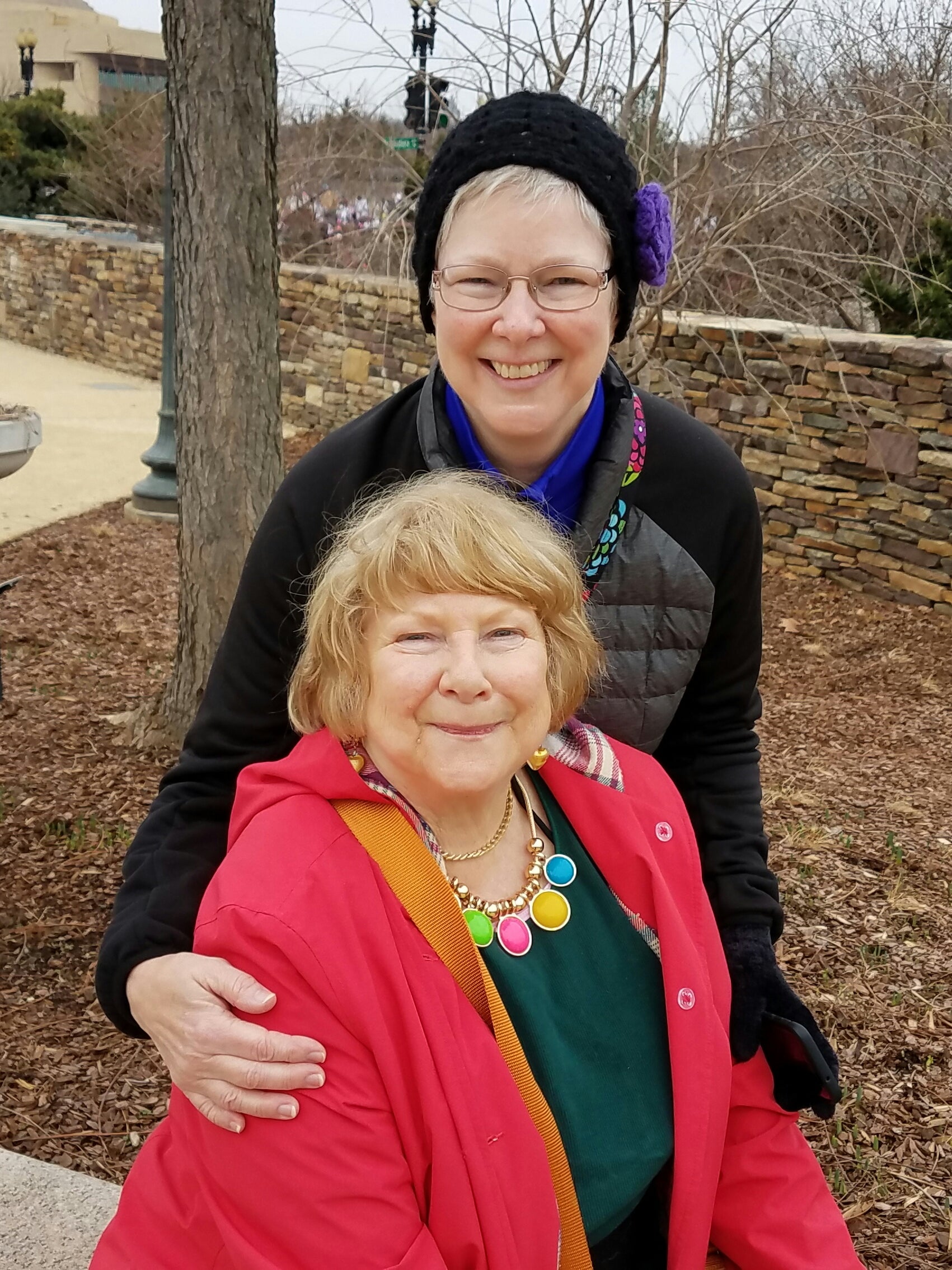
Sisters Colleen Quinn-House, 61, and Pat Quinn, 73, marched on Washington decades ago to demonstrate for women’s rights.
“I was pregnant with my daughter at the time,” said Quinn-House. Today, “we definitely want to send a message,” she said. “We’re united and together we will make a difference.”
When asked if she thought 25 years ago there was any chance she’d be back again to march over the same issues, Quinn responded with ”absolutely not!”
What’s gone wrong? “The states have gotten tighter on voting rights,” Quinn said, trying to keep some people from the polls. And, she added, this current Congress is “more anti-women” than the ones in the past. Planned Parenthood’s opponents “act like the only thing they do is rip babies out of our bodies,” she said.
“I hate to say it,” Quinn added, but Republicans are to blame.
“People think that because we have these rights, they won’t be whittled away,” said Quinn-House. It’s good to see a young crowd, she added, because the generation after hers has had reproductive rights for so long “that they didn’t realize they could ever be in jeopardy.”
Donald Trump is “going to learn the hard way” about the power of women, Quinn predicts.
Aida Gomez, 67, born in Cuba, was also marching in Washington. She said she often goes to rallies for women’s rights because “women have a right to control their body and to be treated fairly, outside and inside the marriage.”
When asked why she thinks we’re still fighting these same battles, she said “we should have worked harder for all human rights, not just women’s rights.”
In 1978, Gloria Steinem and other feminist leaders led a march in DC in support of the Equal Rights Amendment, that was, at the time, the largest-ever march for women’s rights in American history. The ERA, first introduced in Congress in 1923, promised women equal pay and equal rights in the US—and would have barred states from passing any laws discriminating by sex. In 1978, the amendment finally passed the US House and Senate; the march took place as the deadline was nearing for states to ratify it into law.
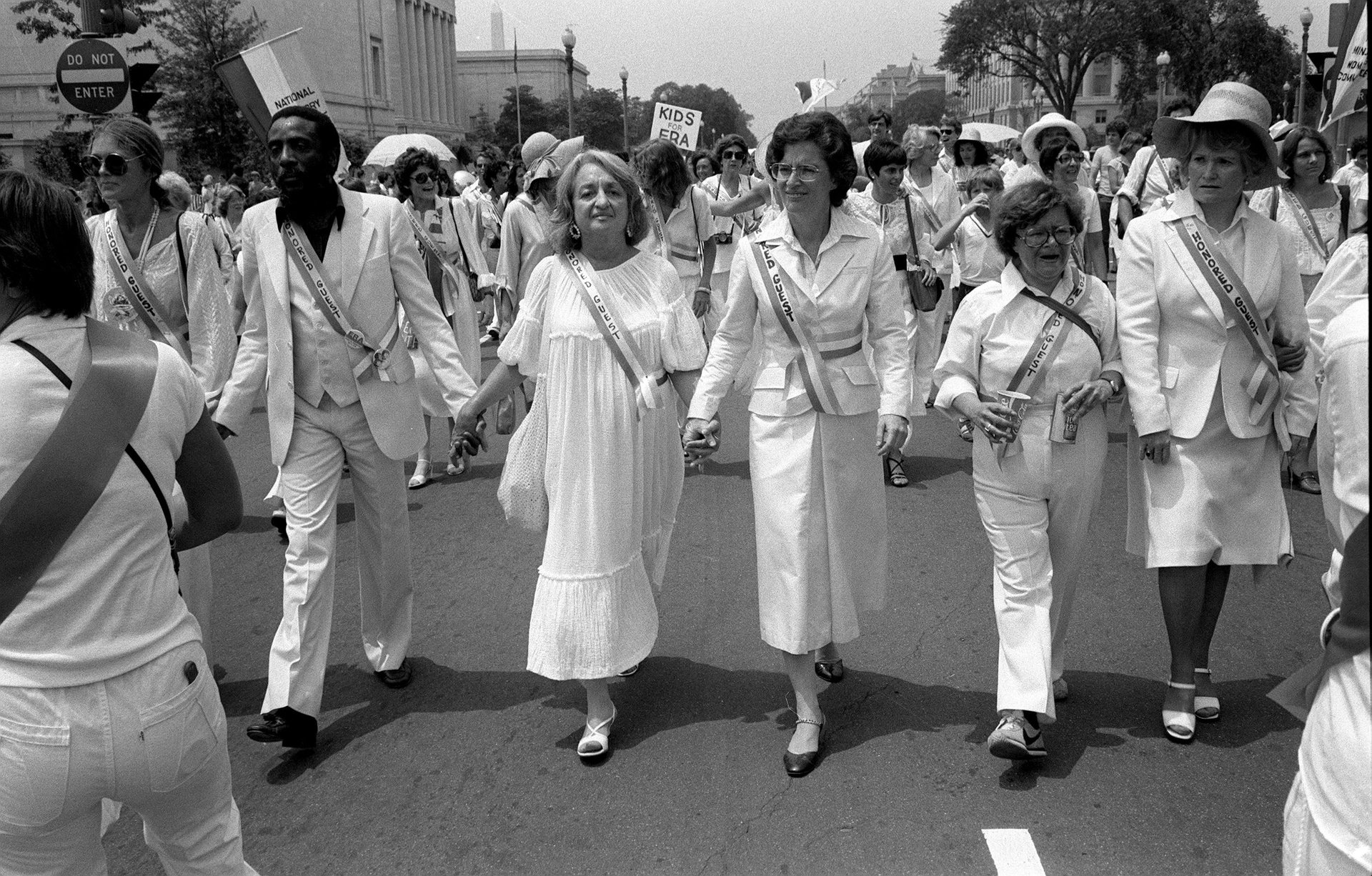
During this weekend’s march, Steinem was again in Washington, where she told the assembled crowd: “We are here and around the world for a deep democracy that says we will not be quiet, we will not be controlled, we will work for a world in which all countries are connected.”
At the 1978 march, the record-setting crowd was estimated at 100,000 strong. An estimated 4 million joined this weekend’s marches across the US, making it the largest one-day protest in the country’s history. The Equal Rights Amendment, though, has still not been passed.